Big Bill Broonzy’s Spirited Blues
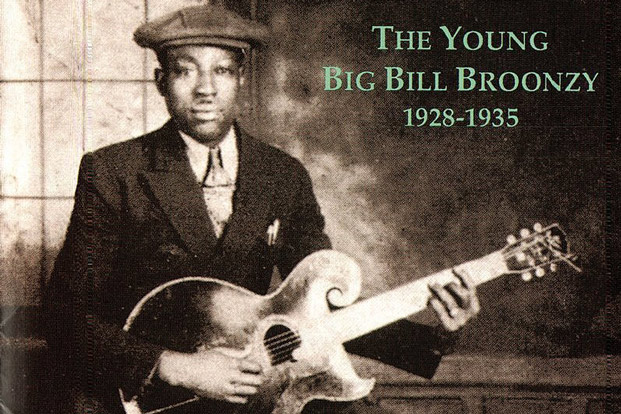
Big Bill Broonzy, born Lee Bradley in 1893, switched from violin to acoustic guitar and moved from his native Jefferson County, Arkansas, to Chicago by the early Twenties, where he began carving a unique musical niche that melded folk, country blues, ragtime, spirituals and “hokum” (a style of “comedic” blues spawned in the late Twenties).
While his early records explored the influences of Blind Blake, Blind Lemon Jefferson and Son House, in the early Forties Big Bill switched to electric guitar, kickstarting what became postwar Chicago blues. He returned to fingerpicked “country blues” and folk in his twilight years, when he enjoyed his biggest fame.
Today Broonzy has over 300 songs published, is in the Blues Hall of Fame and has influenced countless pickers, including Muddy Waters, Eric Clapton, Pete Townshend, John Lennon and John Frusciante. Let’s have a look at some of his groovy moves.
Broonzy’s first recording, cut under the name “Big Bill and Thomps” (“Thomps” was Bill’s friend John Thomas, on vocals and second guitar), included an intense “finger scrambling” blues called “House Rent Stomp,” its odd yet highly sophisticated turnaround lick approximated in FIGURE 1. Use your pick-hand’s thumb and index fingers as indicated; the note pairs on the high strings in bars 3 and 4 are sounded with an upward index-finger brush stroke. FIGURE 2 shows the tune’s breakdown, an etude of fingerpicked eighth notes. Broonzy recorded this piece numerous times throughout his career; for a superbly played and recorded rendition, check out The Complete Vogue Recordings.
Beginning in 1930 and operating under the moniker Famous Hokum Boys, Broonzy and company issued dozens of “party blues” albums, their tracks now preserved in Famous Hokum Boys, Vol. 1 (Wolf Records). One of this era’s many highlights is the ragtime-infused “Saturday Night Rub,” which features fingerpicking like FIGURE 3 (atop second guitarist Frank Blaswell’s walking bass lines). Practice bars 1 and 2 (D7/A) to perfection; the same picking pattern is used in the remaining bars over G.
In 1938, as a replacement for the recently deceased Robert Johnson, Broonzy participated in John Hammond’s historic “From Spirituals to Swing” concert at Carnegie Hall, significantly upping his public profile. By 1940, Broonzy had penned the blues standard “Key to the Highway,” since covered by Little Walter, the Rolling Stones, Derek and the Dominos and Led Zeppelin, among many others. FIGURE 4 shows some of the moves Broonzy used in his classic eight-bar blues.
We’ll close this lesson with FIGURE 5, a tribute to “Hey Hey,” as recorded in 1951—one of the few Broonzy pieces for which video exists. Playing “dead thumb” style—picking slightly muted, low open strings in steady quarter notes—this groovy blues became a huge inspiration to a young Eric Clapton, who later featured it on his Unplugged album. Broonzy’s last recording session was in 1957, 30 years after his first. Originally released on five LPs, it now exists as a three-CD set, The Bill Broonzy Story. Unbeknownst to all, Broonzy was fighting throat cancer at the time of recording; he succumbed in 1958. Muddy Waters was one of his pallbearers.
Acoustic Nation July 2016 FIGURE 1
Acoustic Nation July 2016 FIGURE 2
Acoustic Nation July 2016 FIGURE 3
Acoustic Nation July 2016 FIGURE 4
Acoustic Nation July 2016 FIGURE 5
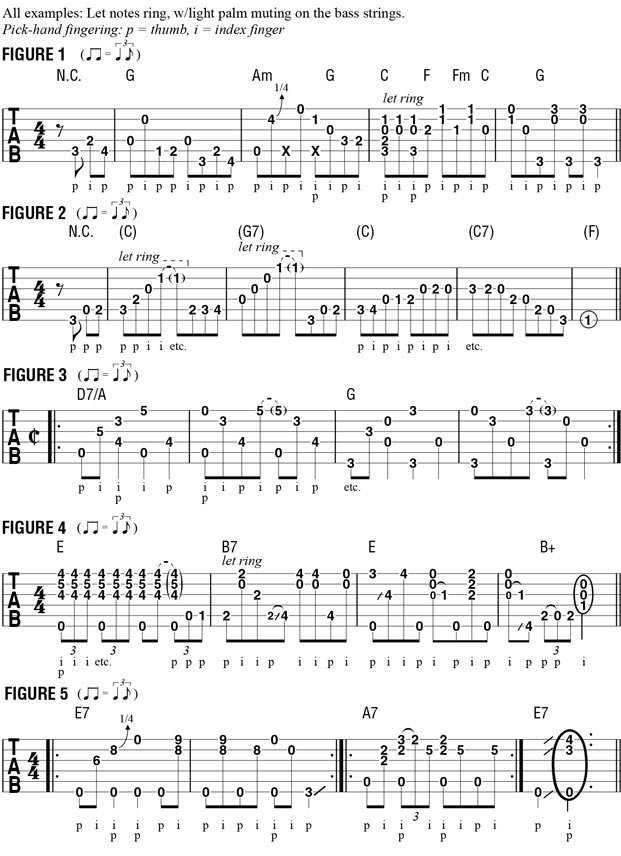
Get The Pick Newsletter
All the latest guitar news, interviews, lessons, reviews, deals and more, direct to your inbox!
A singer-songwriter/multi-instrumentalist/film composer, Musician's Institute instructor, and author of 50+ transcription/instructional books, Dale Turner is also Guitar World's "Hole Notes"/"Acoustic Nation" columnist, and the former West Coast Editor of Guitar One magazine. Some of Dale’s old, weird, rare, and/or exotic instruments are featured in his score for WEEDS, the first animated short completed within the Filmmakers Co-op at Disney Feature Animation. His most recent CD, Mannerisms Magnified, was praised by Guitar Player magazine for its "Smart pop tunes that are crammed with interesting guitar parts and tones ... Like what the Beach Boys might do if they were on an acid trip that was on the verge of getting out of control. Yeah!"
“There are so many sounds to be discovered when you get away from using a pick”: Jared James Nichols shows you how to add “snap, crackle and pop” to your playing with banjo rolls and string snaps
Don't let chord inversions bamboozle you. It's simply the case of shuffling the notes around
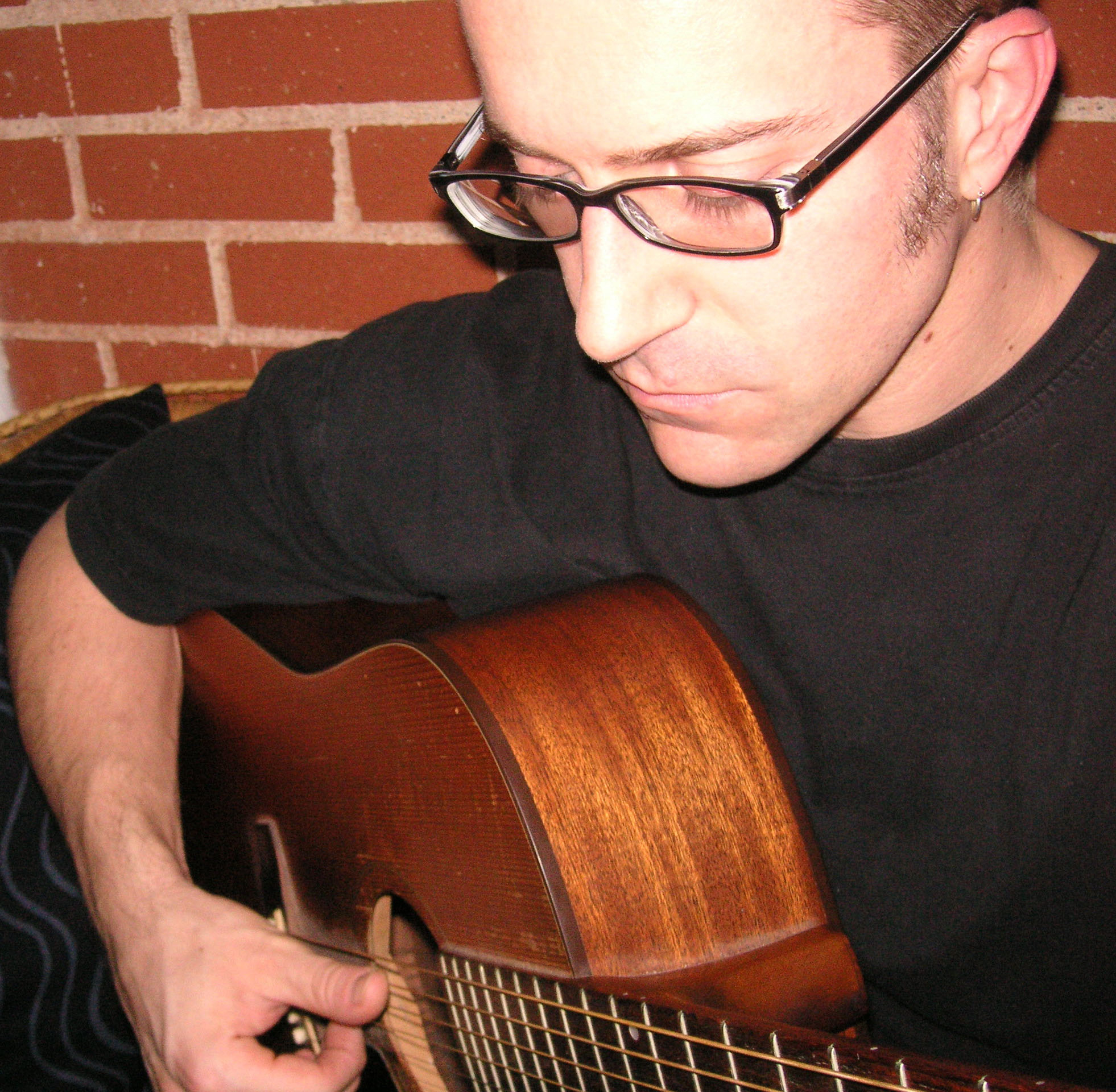

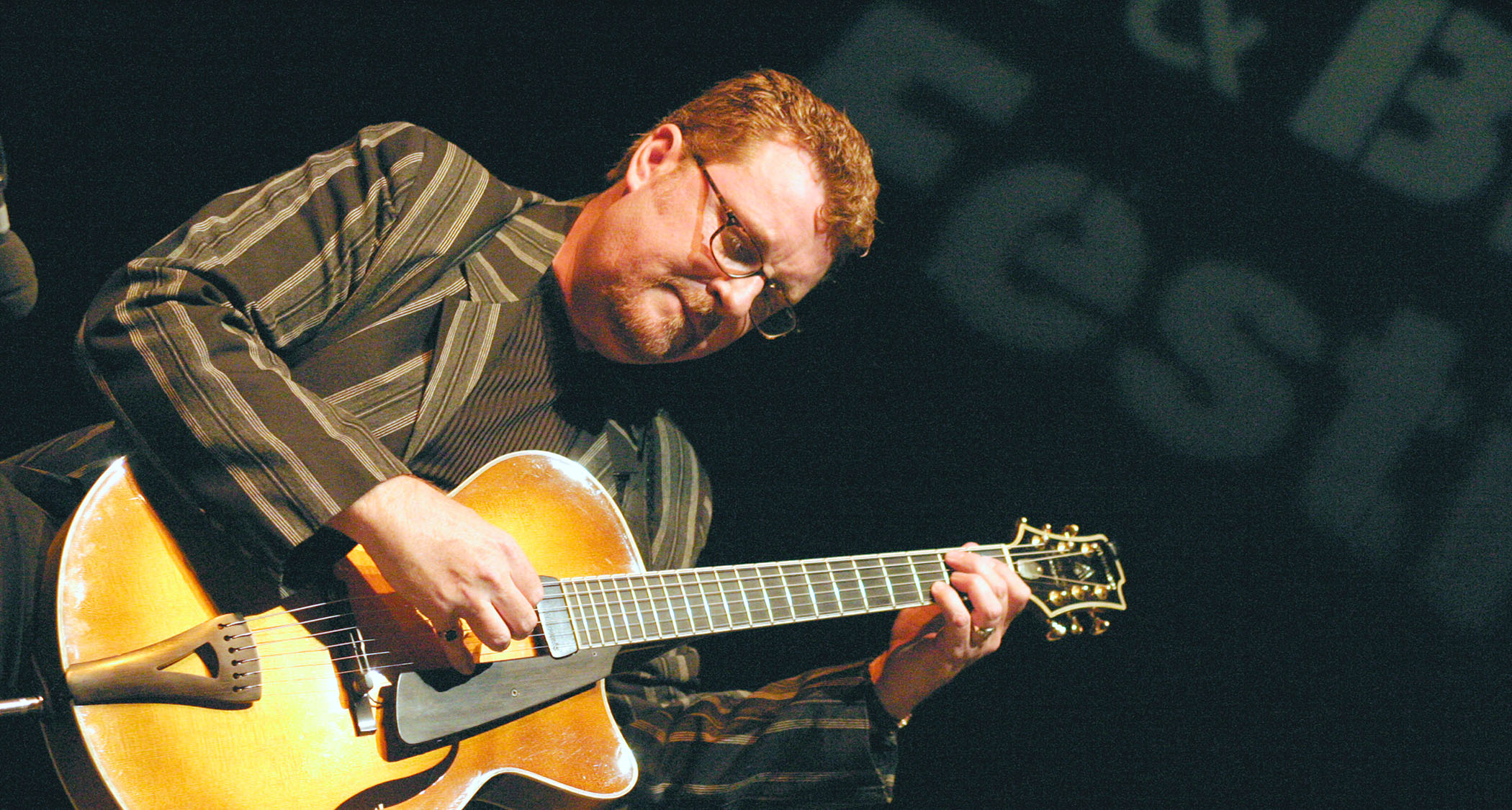



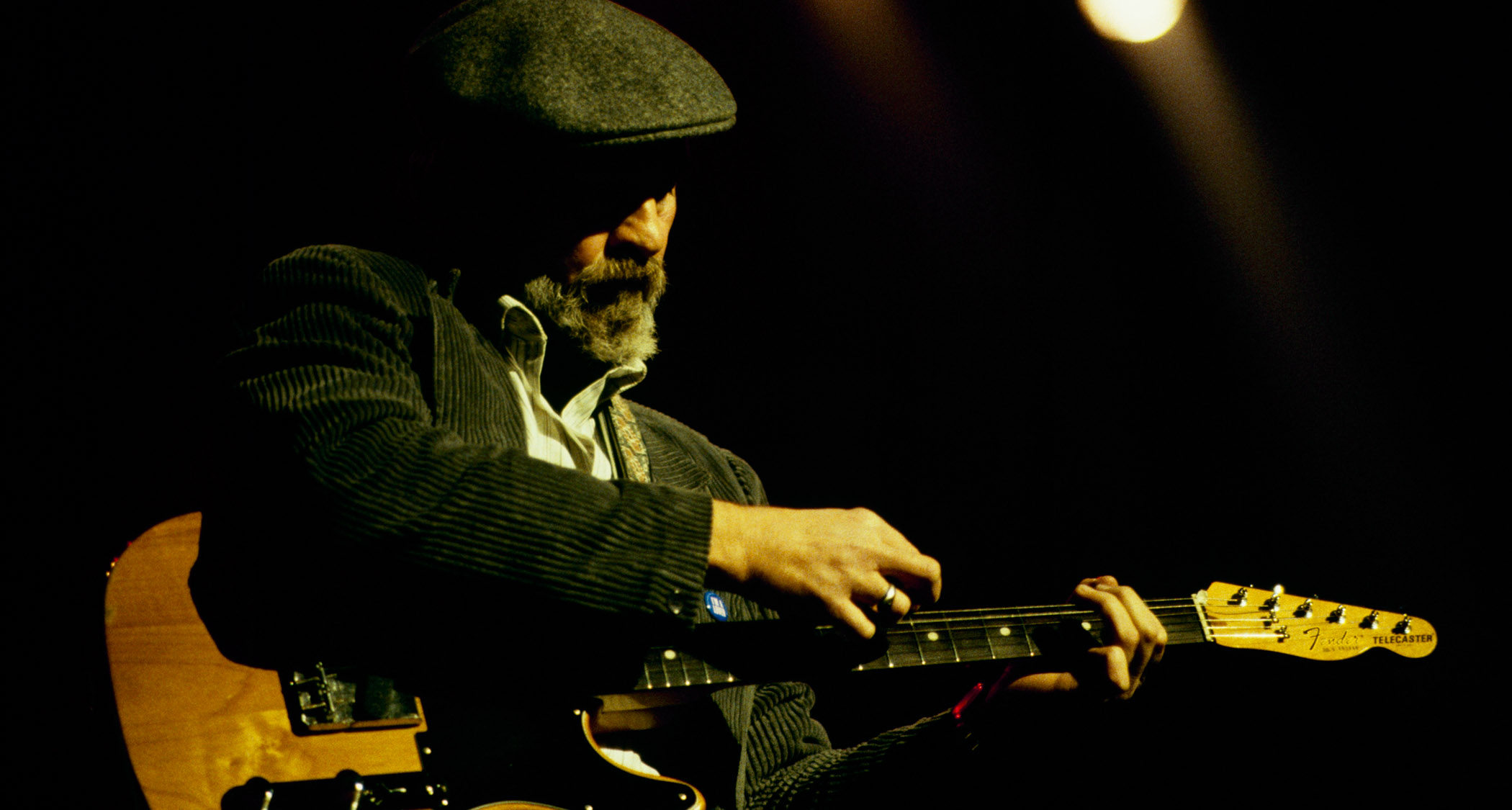
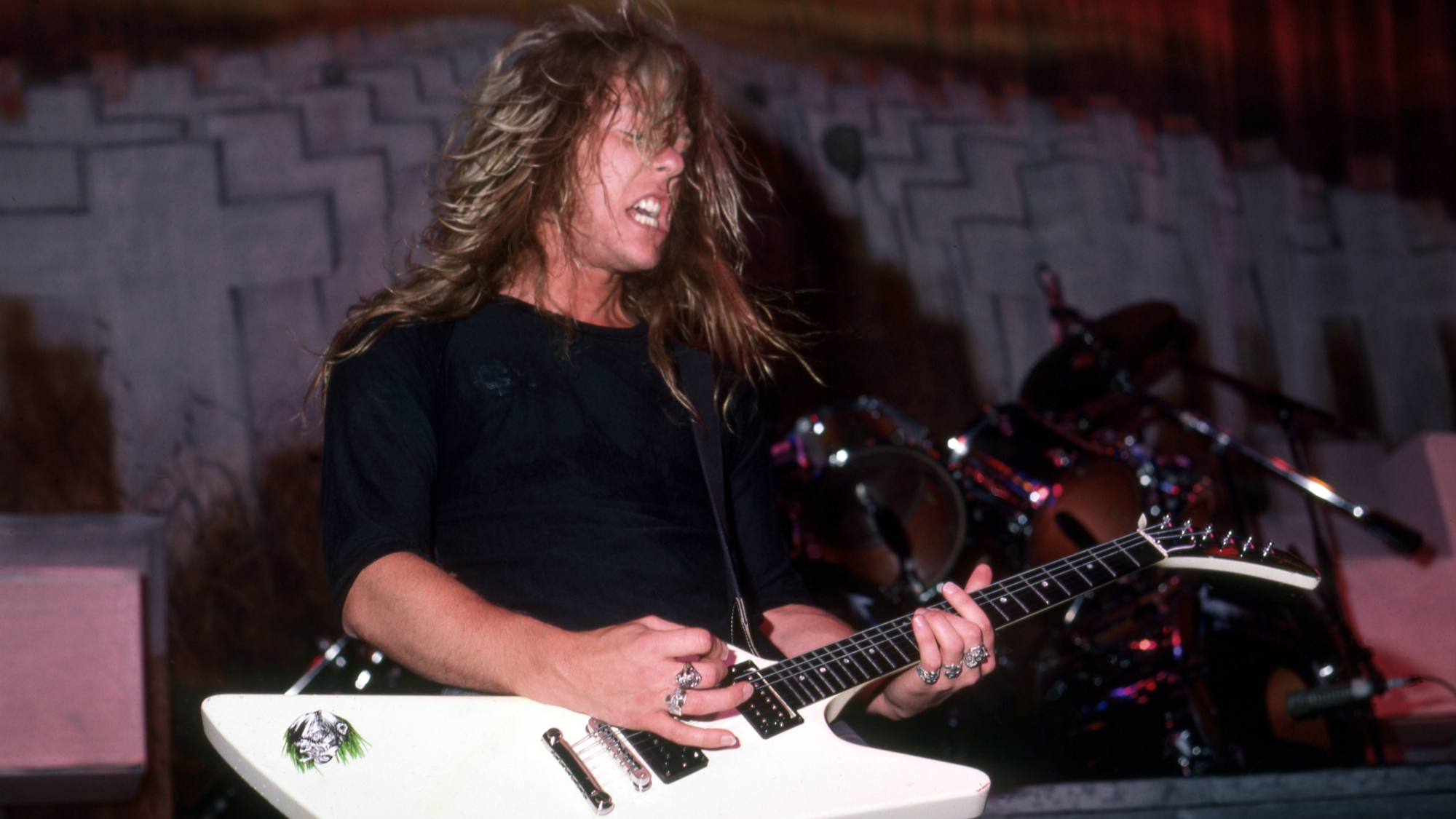
![Joe Bonamassa [left] wears a deep blue suit and polka-dotted shirt and plays his green refin Strat; the late Irish blues legend Rory Gallagher [right] screams and inflicts some punishment on his heavily worn number one Stratocaster.](https://cdn.mos.cms.futurecdn.net/cw28h7UBcTVfTLs7p7eiLe.jpg)


